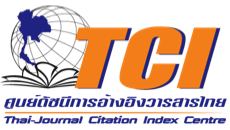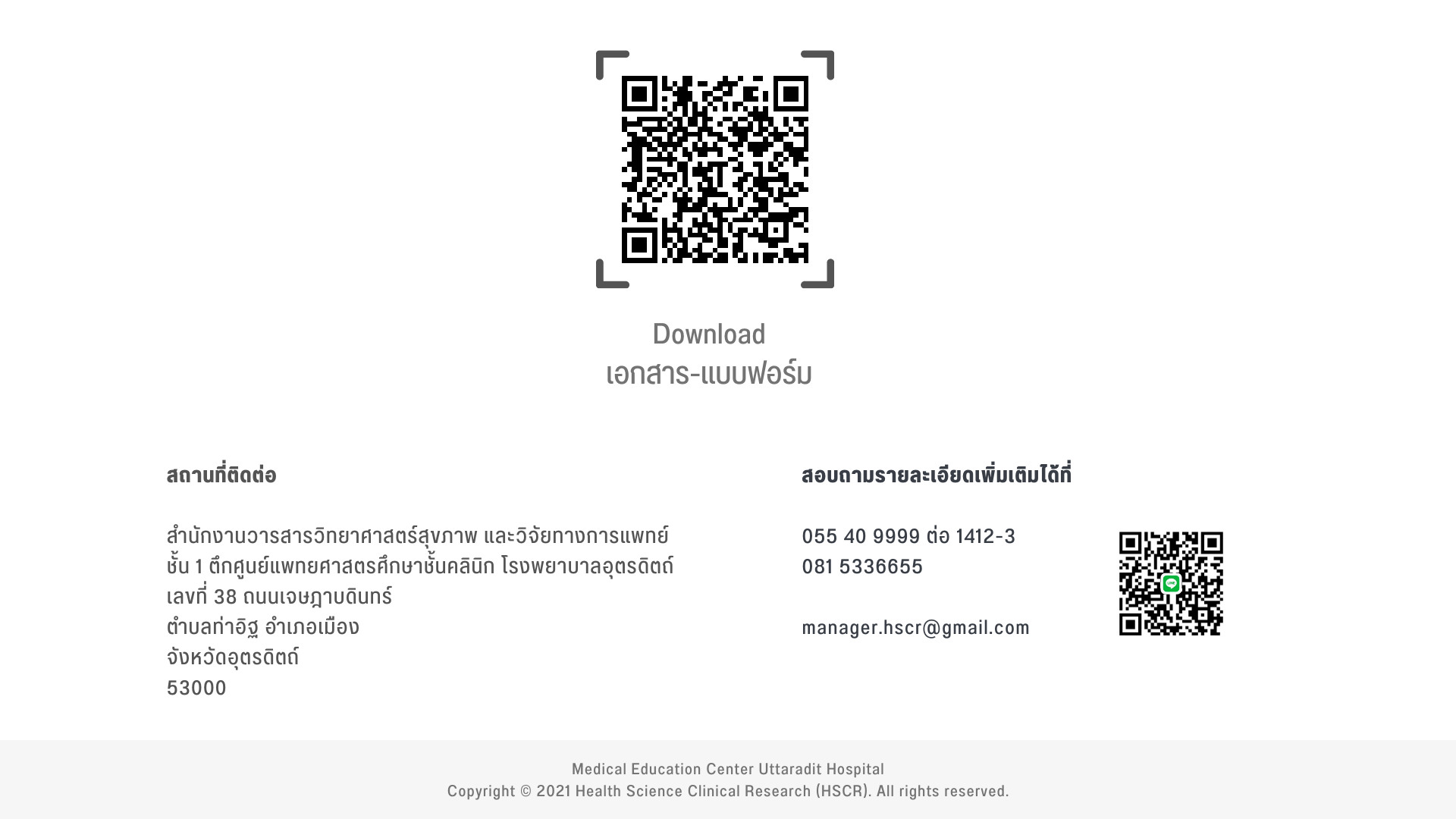Development of self-care model for elderly people at risk of diabetes in Uttaradit Province
DOI:
https://doi.org/10.1016/hscr.v39i2.274393Keywords:
elderly, diabetes, risk, self-health careAbstract
ABSTRACT
Objective: This research aims to study the current situation and factors affecting self-care behavior of the elderly, to develop a self-care model appropriate for the elderly based on lifestyle, culture, and community context, and to evaluate the self-care model, measure blood sugar levels, waist circumference, nd quality of life of the elderly at risk of developing diabetes in Uttaradit Province.
Study Design: This research, Participatory Action Research (PAR), focused on studying the effects of activities based on self-care patterns for the elderly at risk of diabetes by applying Pander’s health promotion theory. The research instruments were a questionnaire to assess the health of the elderly, an in-depth interview, a behavioral observation record, and a focus group discussion. Both quantitative and
qualitative data (Mixed Methods) were analyzed to obtain complete data that accurately reflected the self-care behaviors of the elderly. Descriptive and inferential statistics were used to analyze the frequency and percentage of health behaviors. The arithmetic means and standard deviations of health behavior scores were calculated. Blood sugar levels and waist circumferences were compared before and after participating in the activities. The study was conducted in a group of 60 elderly people at risk of diabetes using purposive sampling in the area under the responsibility of Ban Dan Nakham Subdistrict, Mueang District, Uttaradit Province.
Results: The results of the study found that the elderly at risk of diabetes in Uttaradit Province had self-care behaviors that combined personal experiences, health theories, and their own lifestyle contexts. The self-care patterns of the elderly emphasized eating nutritious foods, especially growing their own vegetables, eating mainly vegetables, fish, not drinking alcohol, and not smoking. They emphasized mental health by doing group activities together, such as doing hobbies, listening to music, exercising together, and exercising regularly in their daily lives, such as gardening, cycling, and walking. They lived
a traditional lifestyle by cooking their own food and choosing to eat local food. The main way of traveling in the village was walking or cycling.
Conclusions: The results of the implementation of the self-care model for the elderly with a risk of diabetes
in Uttaradit Province clearly had a positive effect on the health of the elderly. The mean score of health behaviors after implementing the self-care model by each aspect was at a very good level, including exercise, with a mean score of 4.87 (S.D. = .345), eating vegetables, with a mean score of 4.83 (S.D. = .379), smoking, with a mean score of 4.67 (S.D. = .884), physical health examination, with a mean score of 4.57 (S.D. = .774), and drinking alcohol/alcoholic beverages, with a mean score of 4.53 (S.D. = .730). As for other health behaviors, they were at a good level. It was found that 52 elderly people (86.7%) had lower blood sugar levels and returned to normal, with a mean score of 4.28 (S.D. = .268), which was a significant increase.
References
National Statistical Office of Thailand. For executives entering the aging society and organizational structural changes during 2017-2027. Bangkok: National Statistical Office of Thailand; 2021.
Ministry of Public Health. Strategic plan for elderly health 2021–2030. Bangkok: Department of Health Publishing; 2020.
Siriwat A. Development of health care skills for patients with chronic diseases. Bangkok: Sukkapabdee Publishing; 2021.
Thongdee S. Health behaviors of elderly at risk of diabetes. J Nurs Sci. 2018;10(1):27-35.
Uttaradit Provincial Public Health Office. Elderly disease data. Uttaradit: Uttaradit Provincial Public Health Office; 2021.
Sombunchai W, et al. Study of factors influencing elderly health care in Thailand. J Public Health Acad. 2021;30(4):15-25.
Boonpitak P. Health promotion in the elderly. J Health Res. 2019;12(3):45-56.
Sriboonruang T. Factors affecting diabetes risk among the elderly in Northern Thailand. J Public Health Res. 2017;15(4):89-102.
National Health Security Office. Guidelines for the care of elderly at risk of chronic diseases. Bangkok: National Health Security Office; 2019.
Sinchai W. Effects of a health promotion program on self-care behaviors of elderly at risk of diabetes [Master’s thesis]. Chiang Mai: Chiang Mai University; 2021.
Pender NJ. Health promotion model. In: Pender NJ, Murdaugh CL, Parsons MA, editors. Health promotion in nursing practice. 6th ed. Boston: Pearson; 2011. p. 31-52.
Department of Medical Services, Ministry of Public Health. Elderly health assessment form. Bangkok: Department of Medical Services; 2021.
Streiner DL, Norman GR, Cairney J. Health measurement scales: A practical guide to their development and use. 5th ed. Oxford: Oxford University Press; 2015. p. 30-60.
Bland JM, Altman DG. Statistical methods for assessing agreement between two methods of clinical measurement. Lancet. 1986;327(8476):307-10. doi:10.1016/S0140-6736(86)90837-8.
Rovinelli RJ, Hambleton RK. On the use of content specialists in the assessment of criterion-referenced test item validity. Dutch J Educ Res. 1977;2(2):49-60.
Polit DF, Beck CT. Nursing research: Generating and assessing evidence for nursing practice. 10th ed. Philadelphia: Wolters Kluwer; 2017. p. 250-5.
World Medical Association. Declaration of Helsinki: Ethical principles for medical research involving human subjects. JAMA. 2013;310(20):2191-4. doi:10.1001/jama.2013.281053.
National Commission for the Protection of Human Subjects of Biomedical and Behavioral Research. The Belmont report: Ethical principles and guidelines for the protection of human subjects of research. Washington, D.C.: U.S. Government Printing Office; 1979.
Siriporn P, Thanita M. Participatory Action Research: A methodology for development and collaborative learning. J Educ Dev. 2020;12(3):45-58.
Downloads
Published
How to Cite
Issue
Section
License
Copyright (c) 2025 Health Science Clinical Research

This work is licensed under a Creative Commons Attribution-NonCommercial-NoDerivatives 4.0 International License.
The names and email addresses entered in this journal site will be used exclusively for the stated purposes of this journal and will not be made available for any other purpose or to any other party.











